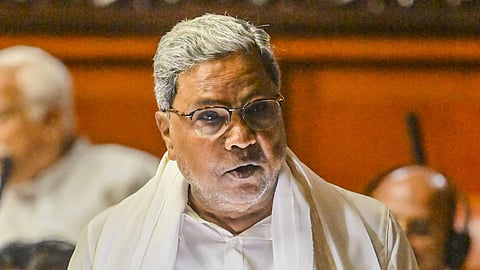

A year into its tenure, the Karnataka government is beginning to feel the burden of its successful ‘guarantee schemes’. With the Lok Sabha elections done, the Siddaramaiah government has set about raising resources to fund the schemes, which arguably are popular among the 5.10 crore beneficiaries. Having raised stamp duty by 200-500 percent earlier this year, it has now raised sales tax on fuel, making petrol and diesel Rs 3 costlier. The fallout is a spike in inflation. There are also hints of an increase in water tariff and bus fares, leading to rumbles of discontent from the taxpaying public.
The five guarantees cost the exchequer Rs 36,000 crore in 2023-24, and are billed at Rs 52,009 crore for the current year. Gruha Lakshmi (Rs 2,000 to woman head of family), Gruha Jyoti (200 units free power), Shakti (free bus travel for women), Anna Bhagya (10 kg rice per person) and Yuva Nidhi (Rs 3,000 to unemployed graduates, Rs 1,500 to unemployed diploma holders) came as relief for people impoverished by the pandemic. To its credit, the government also cut domestic and commercial power tariffs.
Defending the rate increases, Siddaramaiah admitted that the government needed more funds for the schemes. Taking on a belligerent opposition, which has demanded a rollback of the fuel rate hikes, he argued that the state was finally on par with others.
The Shakti scheme is delivering unexpected returns, with road transport corporations registering record revenues of Rs 3,930 crore in 2023-24, compared to Rs 3,349 crore in 2022-23. Mobility experts also advocate free public transport, which brings environmental, social and economic benefits, and is in vogue in more than 100 cities across 36 countries.
Realising that the withdrawal of any scheme would be unacceptable, the government is now looking at generating funds. A private consultant has advised the government to monetise about 25,000 acres of land around Bengaluru; this planned urbanisation is expected to attract substantial investments.
It is all very well for politicians to adopt a welfare ideology, but they must realise that someone has to pay for it. Taxing Priya to keep Pradip’s home fires burning has never made economic sense, though it keeps populists in power. The CM, known for his financial skills, will have to balance his pet schemes with visible development if he has to keep both Priya and Pradip happy.